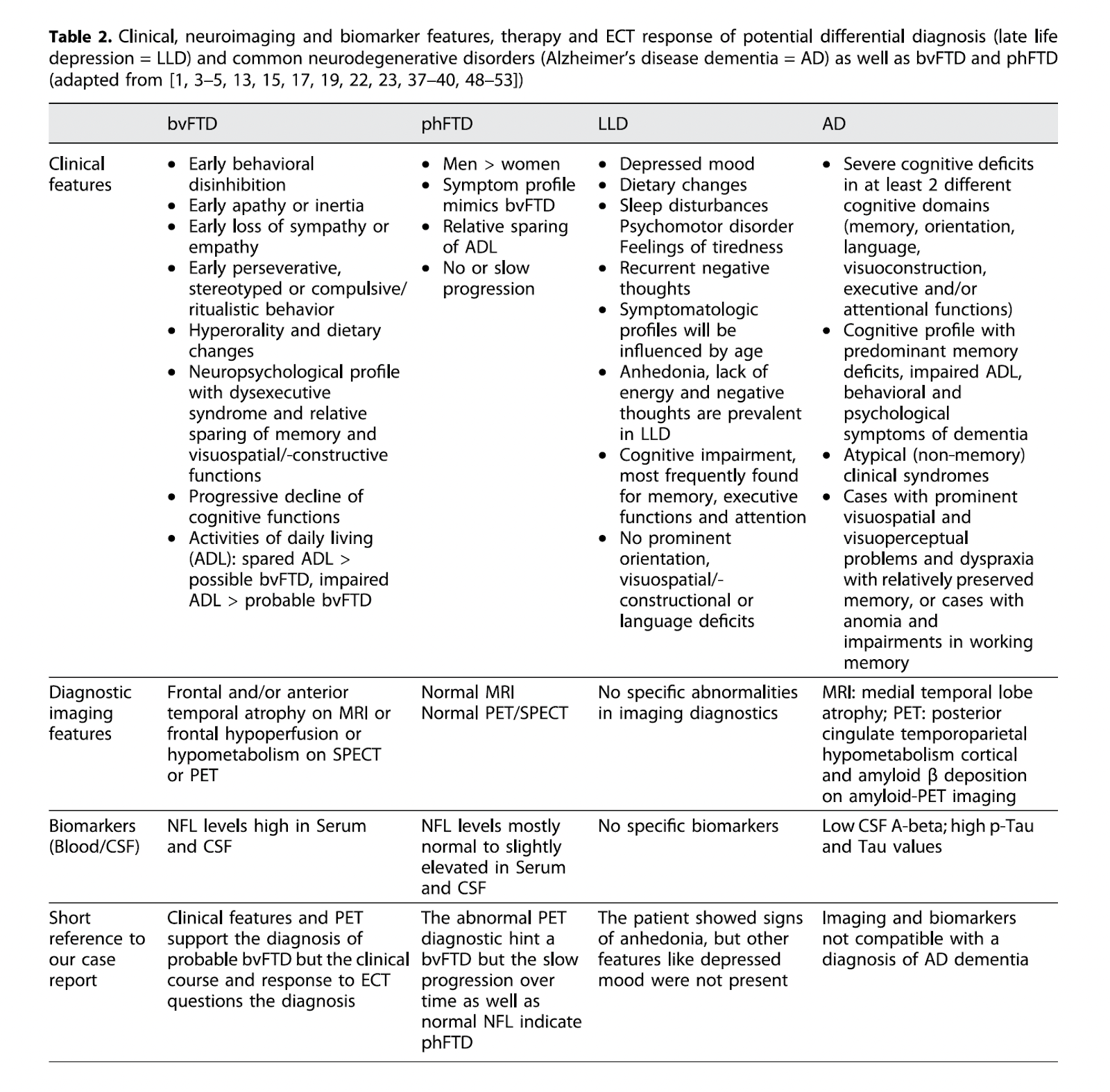Clinical Phenotype of Behavioral-Variant Frontotemporal Dementia Reversed by ECT: A Case Report
Out on PubMed, from authors in Germany, is this case report and literature review:

This is a superior case report, loaded with issues of neuropsychiatric interest. It has a very detailed patient description, good ECT details and a most helpful literature review. I recommend a full and careful read.
Clinical Phenotype of Behavioral-Variant Frontotemporal Dementia Reversed by ECT: A Case Report.
Neuropsychobiology. 2024 Dec 2:1-12. doi: 10.1159/000541668. Online ahead of print.PMID: 39622206
Introduction: Diagnosis of frontotemporal dementia (FTD) remains difficult even in the presence of core clinical and imaging features. Furthermore, disease-modifying treatments are lacking.
Case presentation: Here, we report a case of a patient with clinical and imaging features of FTD. Electroconvulsive therapy (ECT) was used to target affective and catatonic symptoms. After ECT, the patient showed improvements not only in affective symptoms but also in cognitive domains, leading to a marked improvement in the patient's level of functioning.
Conclusion: Against the background of diagnostic uncertainty and lack of disease-modifying treatments for FTD, we emphasize the importance of focusing on treatable symptoms. Thus, we recommend consideration of ECT as a viable option for multiple symptom domains. In this case of bvFTD, ECT was well-tolerated with relatively low side-effects.
Keywords: Behavioral-variant frontotemporal dementia; Behavioral-variant frontotemporal dementia phenocopy syndrome; Dementia; Electroconvulsive therapy.
Case presentation: Here, we report a case of a patient with clinical and imaging features of FTD. Electroconvulsive therapy (ECT) was used to target affective and catatonic symptoms. After ECT, the patient showed improvements not only in affective symptoms but also in cognitive domains, leading to a marked improvement in the patient's level of functioning.
Conclusion: Against the background of diagnostic uncertainty and lack of disease-modifying treatments for FTD, we emphasize the importance of focusing on treatable symptoms. Thus, we recommend consideration of ECT as a viable option for multiple symptom domains. In this case of bvFTD, ECT was well-tolerated with relatively low side-effects.
Keywords: Behavioral-variant frontotemporal dementia; Behavioral-variant frontotemporal dementia phenocopy syndrome; Dementia; Electroconvulsive therapy.
The report is here.
And from the text:

This is a superior case report, loaded with issues of neuropsychiatric interest. It has a very detailed patient description, good ECT details and a most helpful literature review. I recommend a full and careful read.
What I would add to the discussion is the term "pseudodementia" which I think is a very useful concept.
My other comment is beware of over-interpreting PET scans in neuropsychiatric illness.
Big kudos to our German colleagues for this fascinating addition to the ECT in FTD literature.








Comments
Post a Comment